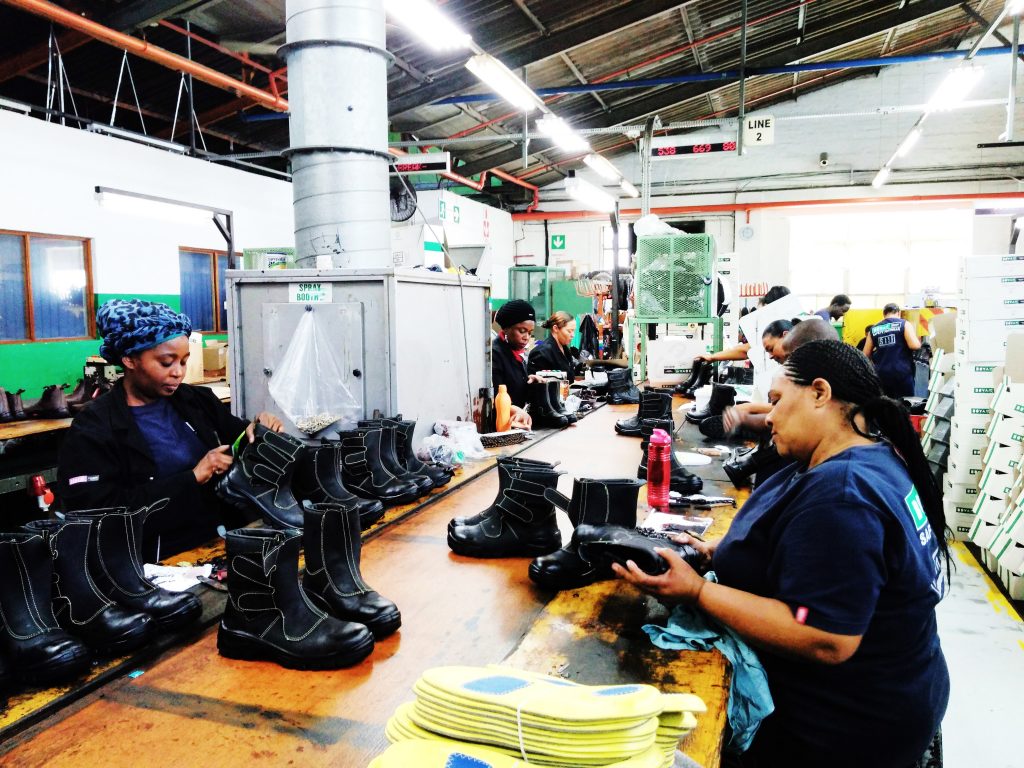BD Manufacturing
In This Together
Last year the manufacturing sector lost 9.1 per cent of turnover and 10.6 per cent of total income, According to South African Insights. There are several reasons for this, including decreased demand, a reliably unreliable supply of power from Eskom, and an over-reliance on imported products.
Imports have hurt a range of manufacturing industries. Silvio Ceriani, CEO of BBF Safety Group, knows all about this: it’s what led to the formation of the company he heads.
“The advent of cheap imports really put the local footwear-manufacturing industry under strain: companies were shutting down and margins were closing. As individual footwear manufacturers, we just couldn’t compete.”
In 2014, realising the only way they could survive was by combining forces, the four main local safety footwear manufacturers – Bagshaw, Beier, Frams and Wayne – joined to form BBF Safety Group, enabling them to pool resources and compete across categories and price points.
Ceriani says that the weakening rand has driven up the cost of some imports, bringing them in line with local pricing, but there remains a never-ending line of low-cost importers. “Where this really hurts the local market is that smaller manufacturers struggle to maintain a consistent competitive edge. We have to accept nominal margins on some ranges just to move volume through the factory, but at least we have that flexibility because of our size.”
Keeping it local
Deepening the local value chain requires more than just assembling products in South African factories. It means sourcing all the requisite components locally too, as far as possible. “If we as a local manufacturer are asking the market to support local companies, the onus is also on us to procure locally as far as possible and develop local suppliers,” says Ceriani. “It’s easy to get imported clothing, finish the garment in South Africa and claim local manufacturing, but that’s not really being part of the solution.”
He believes that government’s intentions are right when it comes to support for local manufacturers, but there are frustrations with the turnaround from regulatory bodies, and implementation and enforcement among companies and state-owned enterprises is lacking. “We believe stricter implementation of procurement policies will help grow SMMEs. For example, when we submit for certain procurement, we submit local content letters for our footwear that explain how we work towards 80–90 per cent local raw materials and manufacturing. That level of scrutiny is what will drive real growth of SMMEs.”






 Sign-up and receive the Business Media MAGS newsletter OR SA Mining newsletter straight to your inbox.
Sign-up and receive the Business Media MAGS newsletter OR SA Mining newsletter straight to your inbox.